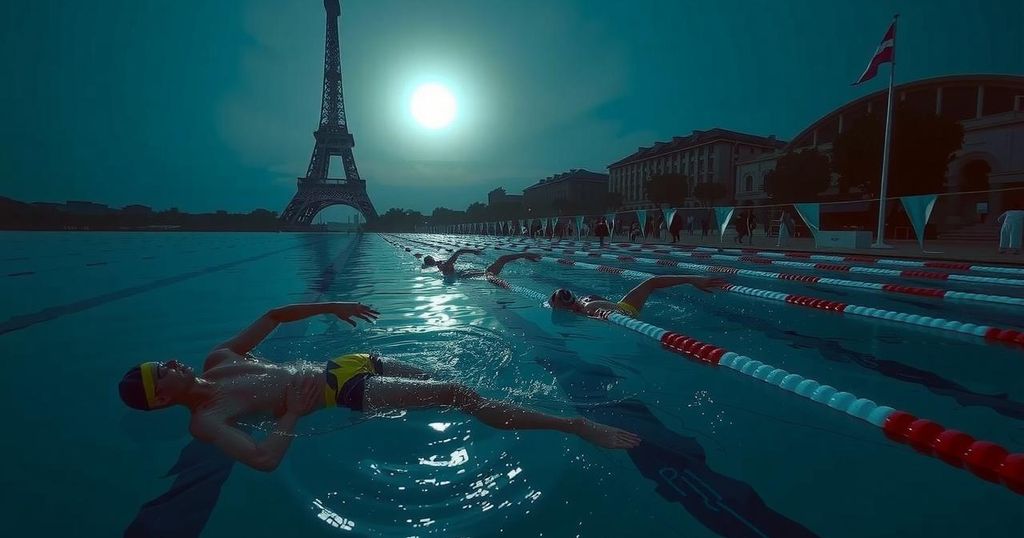The Hazards of Competing in Polluted Waters: Paris Olympian Swimmers at Risk of Infections
Competing in the summer Olympics is a formidable achievement, but the athletes face more than just tough competition. In Paris, the Olympic swimming competitors are at risk of infections from polluted water that take longer to show and might still appear.
The recent incident involving the Belgian triathlon team has raised concerns about the safety of the water in which the athletes are competing. Their lead swimmer, Claire Michel, fell ill, and while some reports indicated that she was infected with E. coli bacteria, the team clarified that she had not been hospitalized for four days, contrary to rumors circulating online. The speculation about the cause of her illness has led to suggestions that the pollution from the Seine River may be to blame, as officials canceled two test runs before her illness due to high bacteria levels in the water.
In addition to Michel, three other triathletes are reportedly ill, but there is no clear link to their swimming in the Seine. Adrien Briffod and Simon Westermann suffered from stomach infections, with Westermann not having swum in the Seine. Norwegian Vetle Bergsvik Thorn developed vomiting a day after the triathlon, but it’s uncertain whether it was related to swimming in the polluted water.
The Seine River has been plagued by overflowing sewage pipes after heavy rains, causing it to be off-limits to swimming for over 100 years. France made efforts to address the issue with a vast rainwater storage facility, but the recent incidents have raised concerns about the effectiveness of these measures. Despite daily water testing, the levels of E. coli have been reported to be below the World Triathlon Federation limits, raising questions about the adequacy of the testing methods.
The threat of infections from polluted water is a genuine concern for the athletes, as other diseases with longer incubation periods could emerge. Leptospirosis, a bacterial infection transmitted primarily through rat urine, has an incubation period of 2-30 days, while Cryptosporidium, a parasite, causes diarrhea 2-10 days after exposure. Wound infections from dirty water and hepatitis A and E are also potential risks for the athletes.
The incidents in Paris have highlighted the need for more comprehensive testing and stricter safety measures to protect the athletes from the hazards of competing in polluted waters. As the world watches the Olympic swimming events, it is essential to prioritize the health and safety of the athletes, and take the necessary measures to ensure that they are not at risk of serious infections.
In conclusion, the health and well-being of the athletes should be the top priority for event organizers and officials, and comprehensive testing methods should be implemented to accurately assess the safety of the water in which the athletes will be competing. By addressing these concerns, the Olympic swimming events can proceed with confidence, knowing that the athletes are not at risk of infections from polluted waters.








Post Comment